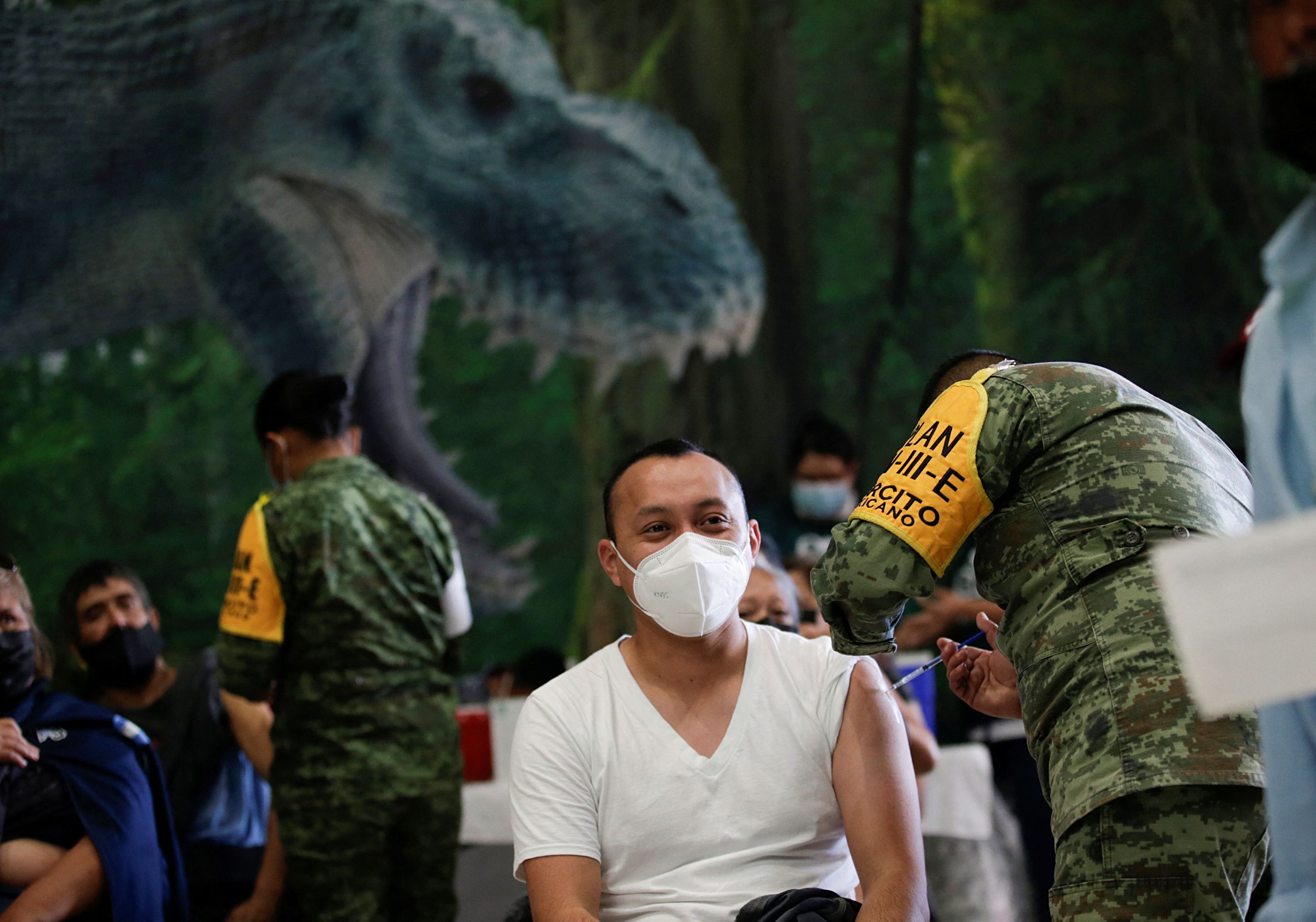
The Patria vaccine is a project developed jointly by the Government of Mexico with Laboratorios Avimex, and according to federal government projections, it would be ready in 2021 to ensure the country's sovereignty in science and health protection, and even said that part of the production could be exported to other countries. to help contain the coronavirus pandemic.
According to Conacyt, the Patria project is currently in Phase 2 after it has successfully passed the preclinical tests in living beings and the Phase 1 clinical study in humans, which were carried out between 2020 and 2021.
He added that these tests were monitored and certified by Cofepris and that the scientific results obtained are promising and suggest that the vaccine is potentially safe and protects against the SARS-CoV-2 virus.
Since the end of 2021 and so far in 2022, the Phase 2 clinical study of Reinforcement of the Patria vaccine has been carried out with the aim of proving its effectiveness as a booster for those who already have a complete vaccination schedule. For this phase, they requested the participation of more than 400 volunteers.
Conacyt did not specify how long it would take to develop Phase 2 or what is the expected date to give way to Phase 3 of vaccine research and development.

Until the cut-off on Saturday, March 26, 2022, the Ministry of Health reported that 190 million 197 thousand 035 doses of the Pfizer-BioNTech, AstraZeneca, Sputnik V, Janssen, Moderna, Sinovac and CanSino formulas have been applied. He explained that in the booster vaccination, until that day coverage was 72% in people over 60 years of age, 49% in people aged 40 to 59 and 41% in people over 18 years of age.
With this project to develop its own vaccine, the government ensures that a firm step towards scientific sovereignty is taken and progress is made in the recovery of the national vaccine production industry.
Mexican Foreign Minister Marcelo Ebrard arrived this week in India to try to promote a cooperation agreement for drugs and vaccines, since this country is considered a power in the field, to the extent that it is called “the pharmacy of the world”.
In 2021, in the midst of the coronavirus crisis, India was one of the states that managed to produce coronavirus vaccines with the fastest speed, even donating a batch to Mexico to help with the National Vaccination Plan.
The head of Mexican diplomacy highlighted the interest in strengthening cooperation with India, one of the world's leading producers of medicines, to agree on joint pharmaceutical development.
On the importance of knowing the scientific experience in the Asian country, Ebrard recalled that the coronavirus pandemic left as one of the hardest lessons the need to expand production and diversification in the supply of medicines.
For these reasons, the head of the SRE highlighted the importance of meeting with the Minister of Health and Family Welfare, as well as members of the Council for Scientific and Industrial Research, and the Medical Research Council, as well as with Indian pharmaceutical companies.
In mid-October 2021, President Andrés Manuel López Obrador reported that he authorized 180 million pesos to the National Council of Science and Technology (Conacyt) to continue with the creation of the Mexican vaccine “Patria”, which he hoped would be ready for application by the end of that year.
“We are going to have our vaccine, Conacyt has all the support, we have just authorized 180 million pesos to support research, so when we have that vaccine, which will depend on effectiveness, at that time it will be something else,” said the Executive on that occasion.
Subsequently, in his speech on December 1 of last year, AMLO said that thanks to scientific research led by Conacyt, “next year we will have the Patria vaccine”. So it is expected that this year 2022 will finally be ready.
KEEP READING:
Últimas Noticias
Debanhi Escobar: they secured the motel where she was found lifeless in a cistern
Members of the Specialized Prosecutor's Office in Nuevo León secured the Nueva Castilla Motel as part of the investigations into the case

The oldest person in the world died at the age of 119
Kane Tanaka lived in Japan. She was born six months earlier than George Orwell, the same year that the Wright brothers first flew, and Marie Curie became the first woman to win a Nobel Prize

Macabre find in CDMX: they left a body bagged and tied in a taxi
The body was left in the back seats of the car. It was covered with black bags and tied with industrial tape
The eagles of America will face Manchester City in a duel of legends. Here are the details
The top Mexican football champion will play a match with Pep Guardiola's squad in the Lone Star Cup

Why is it good to bring dogs out to know the world when they are puppies
A so-called protection against the spread of diseases threatens the integral development of dogs



